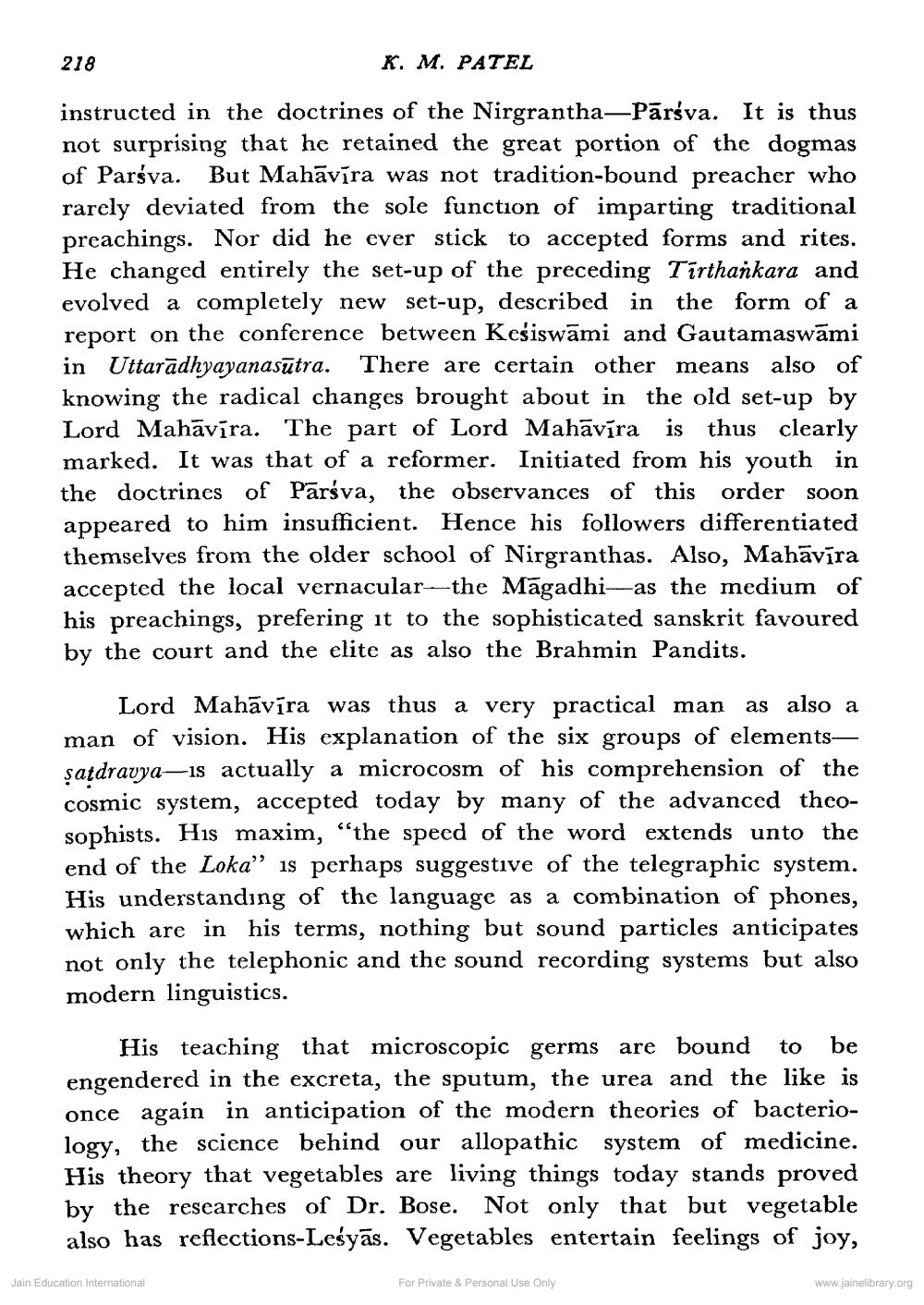________________
218
K. M. PATEL
instructed in the doctrines of the Nirgrantha-Pārsva. It is thus not surprising that he retained the great portion of the dogmas of Paráva. But Mahāvīra was not tradition-bound preacher who rarely deviated from the sole function of imparting traditional preachings. Nor did he ever stick to accepted forms and rites. He changed entirely the set-up of the preceding Tirthankara and evolved a completely new set-up, described in the form of a report on the conference between Kesiswāmi and Gautamaswāmi in Uttarādhyayanasūtra. There are certain other means also of knowing the radical changes brought about in the old set-up by Lord Mahāvīra. The part of Lord Mahāvīra is thus clearly marked. It was that of a reformer. Initiated from his youth in the doctrines of Paráva, the observances of this order soon appeared to him insufficient. Hence his followers differentiated themselves from the older school of Nirgranthas. Also, Mahāvīra accepted the local vernacular-the Māgadhi-as the medium of his preachings, prefering it to the sophisticated sanskrit favoured by the court and the elite as also the Brahmin Pandits.
Lord Mahāvīra was thus a very practical man as also a man of vision. His explanation of the six groups of elements, şatdravya—is actually a microcosm of his comprehension of the cosmic system, accepted today by many of the advanced thcosophists. His maxim, “the speed of the word extends unto the end of the Loka” is perhaps suggestive of the telegraphic system. His understanding of the language as a combination of phones, which are in his terms, nothing but sound particles anticipates not only the telephonic and the sound recording systems but also modern linguistics.
His teaching that microscopic germs are bound to be engendered in the excreta, the sputum, the urea and the like is once again in anticipation of the modern theories of bacteriology, the science behind our allopathic system of medicine. His theory that vegetables are living things today stands proved by the researches of Dr. Bose. Not only that but vegetable also has reflections-Leśyās. Vegetables entertain feelings of joy,
Jain Education International
For Private & Personal Use Only
www.jainelibrary.org




